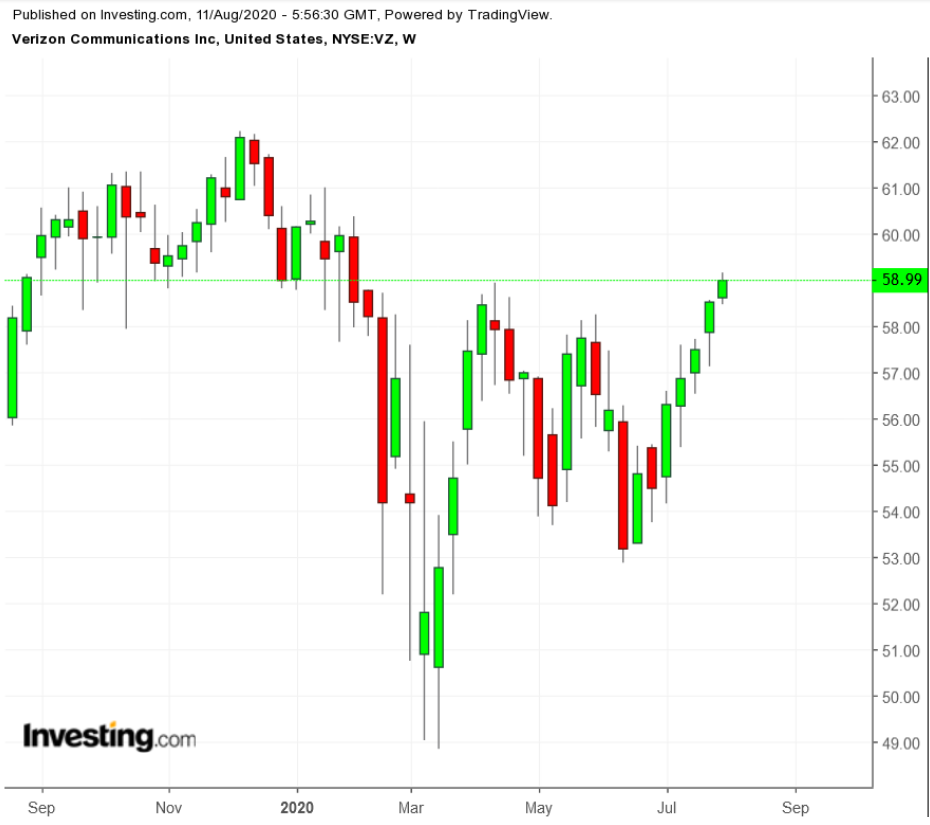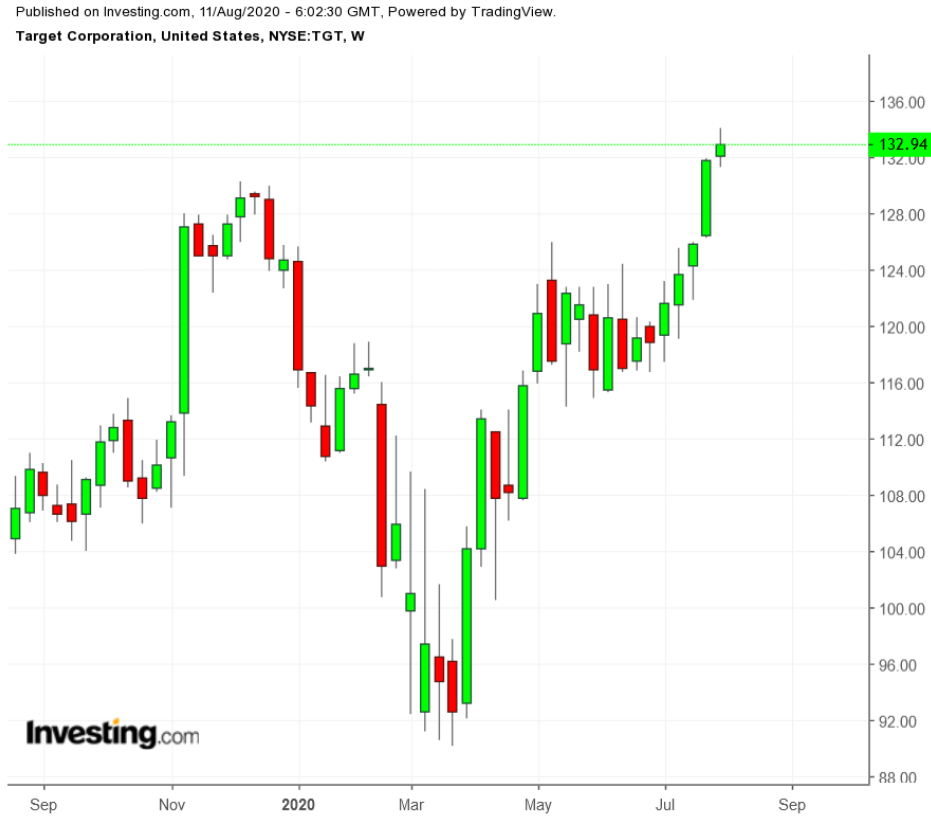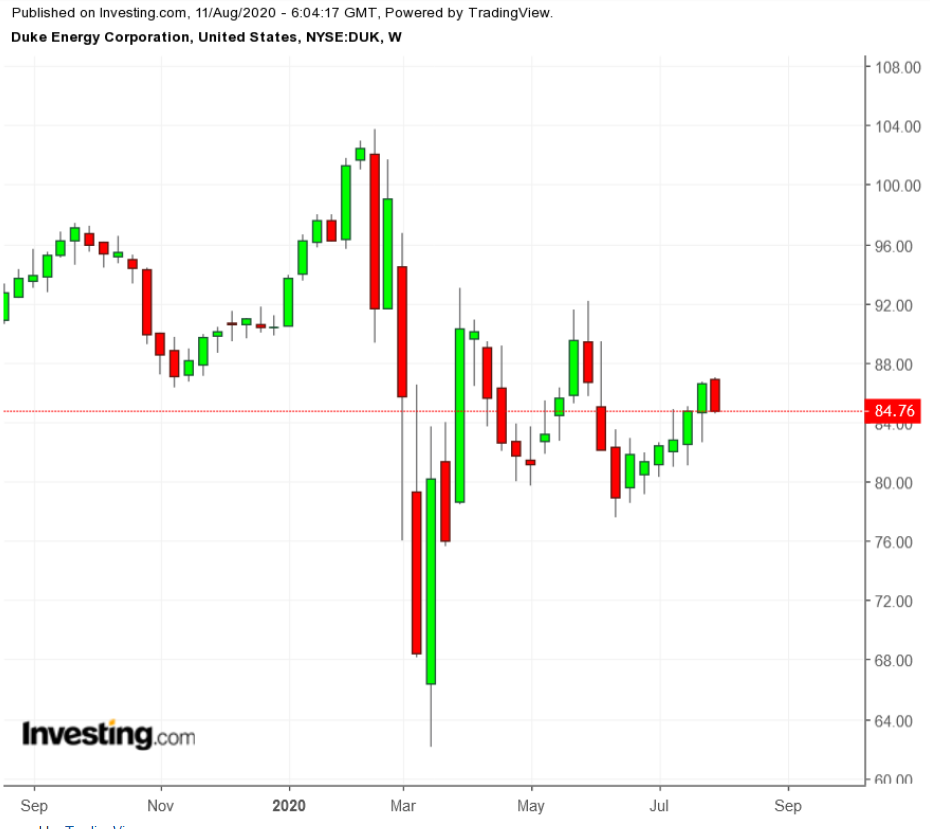It's never too late to start saving for your retirement. But if you’re just starting to invest for your golden years, the biggest challenge you will face is how to build a portfolio that will help support you well enough when you do begin your post-work life.
During the past decade, interest rates have remained low, which has deprived savers of low-risk investment opportunities. The yield on the US 10-year Treasury note, for example, is less than 1% these days.
The reality in this perpetually low-interest-rate environment is that retirees need to have a good chunk of their portfolio tied to stocks to earn higher total returns. Conservative investors who don’t want to add too much risk to their portfolios will need to identify good quality stocks that have the ability to recover from downturns and still continue to provide regular income.
We've selected three dividend stocks worth reviewing which, in the past, have outpaced inflation and provided reasonable returns over the long term.
1. Verizon Communications
Telecom operators are dependable income producers for retirees. No matter what direction the economy is heading, internet and wireless connections will be among the last items consumers delete from their must-have lists. This predictability and stickiness increase their income appeal for long-term investors.
In this space, Verizon Communications (NYSE:VZ) is a good pick for retirees. The company has a solid track record of rewarding investors with dividends, which have been growing since 2007. The company hiked its quarterly dividend by 2% last year, bringing its quarterly payout to $0.615 a share.

At the stock's current price of $58.99, as of Monday's close, that translates into an annual yield of about 4.2%.
Telecoms may not provide hefty capital gains such as those delivered by more volatile high-flying technology stocks, but the downside risk during times of distress is also limited.
Much like for other companies across all industries, the coronavirus pandemic and closure of the US economy have added a layer of uncertainty for Verizon. However, there are reasons to expect Verizon will be one of the companies to weather the storm better than most.
Instead of bulking up its balance sheet with mega deals, Verizon has been focusing on improving its infrastructure. The company has avoided the big entertainment acquisitions that peers like AT&T (NYSE:T) have pursued.
2. Target
The biggest concern that should be addressed when picking a dividend stock with which to earn retirement income is whether the company is capable of producing strong cash flows when the economy is suffering and consumers are limiting their spending.
On this metric, one of the US largest retailers, Target (NYSE:TGT), fits the bill. Its extensive network of stores, massive power to squeeze its suppliers and its fast-improving online sales give it safe haven status.

The biggest evidence of this strength came during the early months of the COVID-19 pandemic when millions of Americans stocked up on food and household items. During that period, Target digital sales grew a whopping 141% as the Minneapolis-based retailer met consumer needs for everything from pantry foods to baby clothes.
In the three months through May 2, Target’s comparable sales rose 10.8% from a year earlier, driven by e-commerce. Digital sales accelerated through the quarter, rising 282% in April alone. As well, more than 5 million customers shopped at Target.com for the first time.
Target raised its quarterly dividend in June to $0.68 a share, its 49th straight year of payout hikes. With a 2.2% dividend, as of yesterday's closing price of $132.94, the big-box retailer provides investors with yield as well as the promise of growth.
3. Duke Energy
Power and gas utilities are among the best picks for retirees due to their tendency to consistently grow their dividends. In this space, Duke Energy (NYSE:DUK) is an attractive option. Through its diversified power, gas and storage businesses, Duke plans to deliver between 4% and 6% annual dividend growth.

The utility is well-positioned to reward its long-term investors following a major restructuring of its portfolio in recent years. The shakeup included selling carbon-based power assets and foreign operations, buying a natural gas utility and expanding its reach in renewable power.
Owning Duke shares make sense for retirees because its regulated business models make its cash flows predictable, meaning there's little risk of negative surprises. The company has a $37-billion development plan to run until 2022 to support the company’s inflation-beating dividend growth.
The utility’s latest earnings report, released yesterday, also showed that the company is weathering the pandemic-induced downturn quite well.
“Despite challenges the first half of 2020 has presented, we’ve demonstrated resilience and agility, delivering solid second-quarter results and on pace to meet our 2020 financial commitments," Lynn Good, Duke Energy chair, president and CEO, said in a statement.
The stock, with a 4.46% annual dividend yield, pays a quarterly dividend of $0.965 a share. It closed on Monday at $84.76.
